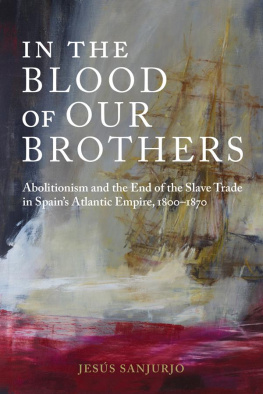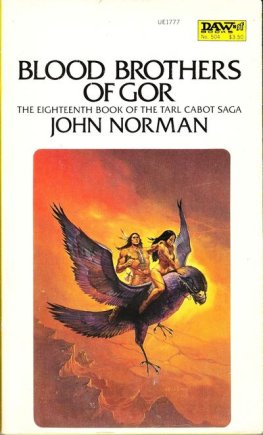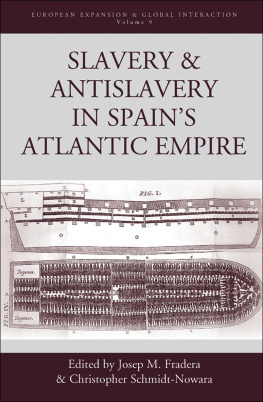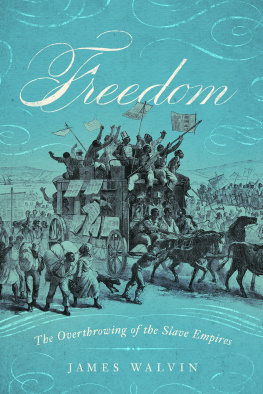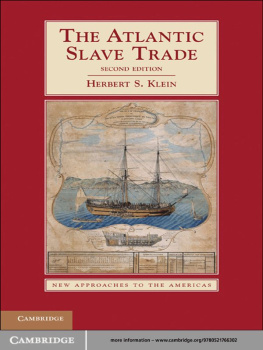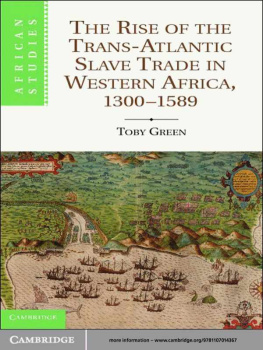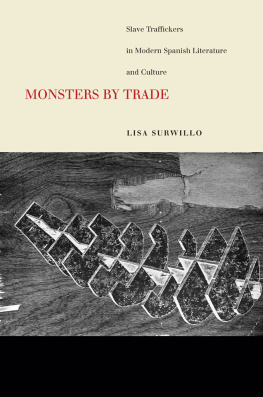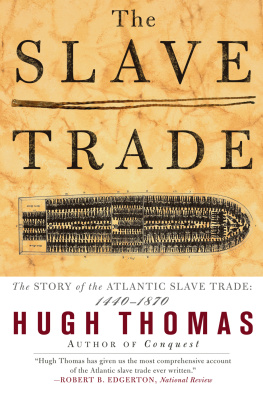Jesús Sanjurjo - In the Blood of Our Brothers: Abolitionism and the End of the Slave Trade in Spains Atlantic Empire, 1800–1870
Here you can read online Jesús Sanjurjo - In the Blood of Our Brothers: Abolitionism and the End of the Slave Trade in Spains Atlantic Empire, 1800–1870 full text of the book (entire story) in english for free. Download pdf and epub, get meaning, cover and reviews about this ebook. year: 2021, publisher: University Alabama Press, genre: Politics. Description of the work, (preface) as well as reviews are available. Best literature library LitArk.com created for fans of good reading and offers a wide selection of genres:
Romance novel
Science fiction
Adventure
Detective
Science
History
Home and family
Prose
Art
Politics
Computer
Non-fiction
Religion
Business
Children
Humor
Choose a favorite category and find really read worthwhile books. Enjoy immersion in the world of imagination, feel the emotions of the characters or learn something new for yourself, make an fascinating discovery.
- Book:In the Blood of Our Brothers: Abolitionism and the End of the Slave Trade in Spains Atlantic Empire, 1800–1870
- Author:
- Publisher:University Alabama Press
- Genre:
- Year:2021
- Rating:5 / 5
- Favourites:Add to favourites
- Your mark:
- 100
- 1
- 2
- 3
- 4
- 5
In the Blood of Our Brothers: Abolitionism and the End of the Slave Trade in Spains Atlantic Empire, 1800–1870: summary, description and annotation
We offer to read an annotation, description, summary or preface (depends on what the author of the book "In the Blood of Our Brothers: Abolitionism and the End of the Slave Trade in Spains Atlantic Empire, 1800–1870" wrote himself). If you haven't found the necessary information about the book — write in the comments, we will try to find it.
Jesús Sanjurjo: author's other books
Who wrote In the Blood of Our Brothers: Abolitionism and the End of the Slave Trade in Spains Atlantic Empire, 1800–1870? Find out the surname, the name of the author of the book and a list of all author's works by series.
In the Blood of Our Brothers: Abolitionism and the End of the Slave Trade in Spains Atlantic Empire, 1800–1870 — read online for free the complete book (whole text) full work
Below is the text of the book, divided by pages. System saving the place of the last page read, allows you to conveniently read the book "In the Blood of Our Brothers: Abolitionism and the End of the Slave Trade in Spains Atlantic Empire, 1800–1870" online for free, without having to search again every time where you left off. Put a bookmark, and you can go to the page where you finished reading at any time.
Font size:
Interval:
Bookmark:
In the Blood of Our Brothers
ATLANTIC CROSSINGS
Gabriel Paquette, Series Editor
Abolitionism and the End of the Slave Trade in Spains Atlantic Empire, 18001870
JESS SANJURJO
The University of Alabama Press
Tuscaloosa
The University of Alabama Press
Tuscaloosa, Alabama 35487-0380
uapress.ua.edu
Copyright 2021 by the University of Alabama Press
All rights reserved.
Inquiries about reproducing material from this work should be addressed to the University of Alabama Press.
Typeface: Adobe Caslon
Cover image: section of Seascape 6, with Alizarin Crimson by Jake Wood-Evans, 120 x 104 cm, oil on linen, 2018; courtesy of Jake Wood-Evans
Cover design: Michele Myatt Quinn
Cataloging-in-Publication data is available from the Library of Congress.
ISBN: 978-0-8173-2105-5
E-ISBN: 978-0-8173-9374-8
To my nephews, Mateo and Diego
Writing a book can sometimes feel isolating, and there have been moments of frustration and fatigue. But this monograph has a much more powerful meaning to me. Thanks to this book I have met some fascinating people, traveled to beautiful and breathtaking places, and discovered the struggle of those who risked it all to live in a more decent society.
I am very grateful to Manuel Barcia and Gregorio Alonso for their guidance, kindness, and encouragement. Without their unwavering support this book would not have been completed. For financial support, I was helped enormously by the White Rose College of Arts and Humanities, the Arts and Humanities Research Council, the universities of Leeds, York, and Cardiff, the Association of Hispanists of Great Britain and Ireland, the Spanish embassies in London and Havana, and the Leeds Humanities Research Institute. I am also grateful to the University of Alabama Press for passionately believing in this project when it was only an early draft.
In the course of writing this study, I have met many academics with whom I have had fascinating conversations and who offered their advice and insightful comments. I owe special thanks to Mara del Carmen Barcia, Catherine Davis, Fernando Durn, Marcela Echeverri, Mercedes Garca, Richard Huzzey, Jean-Franois Manicom, David Murray, Gabriel Paquette, Jos Antonio Piqueras, Eduardo Posada-Carb, Karen Racine, Martn Rodrigo, Romy Snchez, Ismael Sarmiento, Adrian Shubert, Natalia Sobrevilla, Randy Sparks, Lisa Surwillo, and William Van Norman for their help. I am also very thankful to the two anonymous peer reviewers for their very constructive feedback.
I am grateful to the support of my friends and colleagues in Leeds, York, and Cardiff. I am profoundly indebted to Michael Abbey, RJ Arkhipov, Diana Battaglia, Lawrence Black, Graham Carson, Jack Chadwick, Richard Cleminson, Sam Critchell, Hanna Diamond, Daniel Evans, Conor Di Fante, Julio Garca, Mara Garca-Florenciano, Charlotte Hammond, David Huyssen, Tom Johnson, Joel Kirk, Conor J. Lewis, Luca Lpez, Daniel Mourenza, Juan Muoz, Jennifer Nelson, Lourdes Parra, Kristina Pla, Stewart Rusell-Moya, Angel Smith, Montse Venrell, Sam Wetherell, and Joey Whitfield. I am also thankful to Jake Wood-Evans, who kindly authorized the use of his painting Seascape 6, with Alizarin Crimson for the cover of this book.
I would also like to thank the Centre for the Study of International Slavery at the University of Liverpool, the Latin American Centre at the University of Oxford, the Research Group Historia Constitucional de Espaa, the Centre de recherche dhistoire de lAmrique Latine et du monde ibrique at the University of Paris 1 Panthon-Sorbonne, the Casa de Altos Estudios Don Fernando Ortiz at the University of Havana, and the universities of Cadiz, La Laguna, and Pompeu Fabra for inviting me to present some of my work and offering invaluable discussion and feedback.
I want to express my gratitude to the staff at the Archivo Nacional de la Repblica de Cuba and the Biblioteca Nacional de Cuba Jos Mart in Havana, the Archivo del Congreso de los Diputados and Archivo Histrico Nacional in Madrid, the Archivo de Indias in Seville, the Bodleian Library in Oxford, and the National Archives in London for their efficiency and assistance with my research.
Sections of the Introduction and chapters 1, 2, and 3 are derived in part from articles published by Wiley in the Bulletin of Latin American Studies in 2017, available online: https://onlinelibrary.wiley.com/doi/abs/10.1111/blar.12746, and by Taylor & Francis in the Journal of Iberian and Latin American Studies in 2020, copyright Taylor & Francis, available online: https://www.tandfonline.com/doi/10.1080/14701847.2020.1789377.
Finally, I am also thankful for my loving family!
It was a momentous night. The British Prime Minister William Wyndham Grenville rose from the red benches in the House of Lords to move a second reading of the Bill for the Abolition of the Slave Trade. What right do we derive from any human institution, or any divine ordinance, he asked, to tear the natives of Africa, to deprive them by force of the means of laboring for their own advantage, and to compel them to labor for our profit? The legislation was passed. Watching from the chambers public gallery, a young Spaniard, Agustn de Argelles (18761844), felt that he had witnessed an event of monumental significance. Little did he know that three years later he would attempt to put an end to the infamous traffic across the dominions of the Spanish crown.
Argelles had arrived in London in 1806 and was working for the Spanish government as a secret agent. He would become one of the most important statesmen of his generation and a central figure in Spanish politics for more than forty years. The abolition of the slave trade and slavery would be a recurrent concern during his life, and in many ways his inconsistent convictions and thoughts, his changing attitudes and political action, mirror the complex ways in which Spaniards from both sides of the Atlantic thought about the slave trade and slavery.
Spain officially abolished the slave trade in 1820, but its effective eradication took place only around fifty years later. An intricate system of slave traders, planters, financial backers, and public institutions introduced more than 700,000 African men, women, and children into Cuba, the most important remaining colony of a shrinking empire, between 1800 and 1870. The slave trade in the Spanish imperial territories was profitable until its very last day, and its abolition and much later eradication can be comprehensibly explained only as the consequence of a complex and fragmented process. Since the early abolitionist discourses advanced by Isidoro de Antilln, Jos Mara Blanco White, Miguel Guridi, and Argelles in the 1800s and 1810s, to the antislavery poetry of Concepcin Arenal in the second half of the 1860s, discourses against the slave trade and slavery adopted multiple forms and were advocated by Liberal and Absolutist, progressive and conservative, egalitarian and racist actors.
This book examines the processes of production, circulation, and reception of abolitionist ideas in Spains Atlantic empire at the beginning of the nineteenth century and their development through to the decade of the 1860s. It charts British ideological, political, and diplomatic influence on the construction of antislave trade discourses and policies in Spain and stresses the multiplicity of abolitionist and antiabolitionist ideas between 1802 and 1867. It appraises the emergence and development of public and political expressions of abolitionism and antiabolitionism, studying the ideological backgrounds, political pressures, and motivations that operated during this process.
This book tells the story of people who campaigned for and against the slave trade and slavery but who knew that they would never be enslaved themselves. This is only part of the story: enslaved and free men and women around the world argued, agitated, and fought for freedom, and their contribution is essential to understand the success of the abolitionist cause across the Atlantic. Without the revolts, the activism, and the struggle of Black men and women, the end of the slave trade and slavery would have never happened.
Next pageFont size:
Interval:
Bookmark:
Similar books «In the Blood of Our Brothers: Abolitionism and the End of the Slave Trade in Spains Atlantic Empire, 1800–1870»
Look at similar books to In the Blood of Our Brothers: Abolitionism and the End of the Slave Trade in Spains Atlantic Empire, 1800–1870. We have selected literature similar in name and meaning in the hope of providing readers with more options to find new, interesting, not yet read works.
Discussion, reviews of the book In the Blood of Our Brothers: Abolitionism and the End of the Slave Trade in Spains Atlantic Empire, 1800–1870 and just readers' own opinions. Leave your comments, write what you think about the work, its meaning or the main characters. Specify what exactly you liked and what you didn't like, and why you think so.

